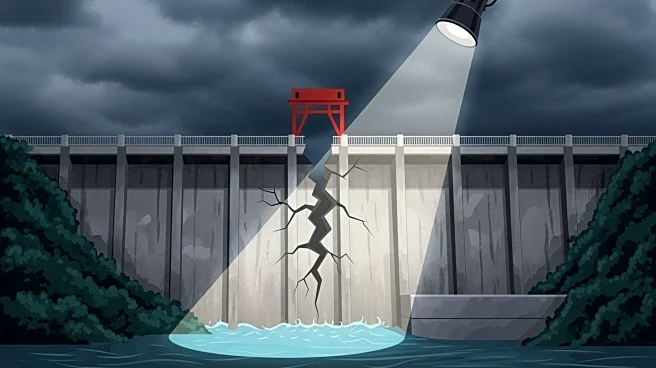What's Happening?
Amid allegations of slow action in addressing a flood control scandal, the Philippine government insists on adhering to due process. Palace Press Officer Undersecretary Atty. Claire Castro emphasized the importance
of legal procedures to avoid human rights violations. Business groups and trade unions have urged President Ferdinand Marcos Jr. to take decisive measures against corruption, suggesting reforms in budget processes and the creation of a special court division for infrastructure corruption cases. The government has taken steps such as freezing assets and issuing immigration lookout bulletins, but critics demand more immediate actions.
Why It's Important?
The scandal and the government's response highlight ongoing challenges in combating corruption within infrastructure projects. The call for reforms reflects broader concerns about governance and accountability, impacting public trust in government institutions. Effective handling of the scandal is crucial for restoring confidence and ensuring transparency in public projects, which are vital for national development and economic stability.
What's Next?
The government is expected to continue its investigations while balancing the need for due process with public demands for swift action. The outcome of these efforts could influence future policies on corruption and governance, potentially leading to legislative changes and enhanced oversight mechanisms. Stakeholders, including civil society and international observers, are likely to watch closely for developments and responses from the administration.












